Hi #SmartCommunity friends! Welcome back to the Smart Community Podcast. In this episode I have a fantastic conversation with Calum Handforth. Calum works for the United Nations Development Programme (UNDP) and has led innovation and digitalisation efforts globally, as well as advised governments around the world. He was also Co-Chair of the Digital Infrastructure Taskforce, part of the World Economic Forum’s G20 Working Group on Smart Cities.
In this episode, Calum and I discuss the types of things he works on at the UNDP, and the progress made on the 17 Sustainable Development Goals since they were introduced in 2015. We talk about using data and storytelling to drive progress and innovation, including Calum’s BLT acronym when thinking about data, and the potential of open source digital solutions to improve city infrastructure and services. Calum tells us about his favourite project he’s worked on at the UNDP, that incorporated a human-centred design approach to improve a market in Gambia, and the emerging trends of refocusing on the city as the centre of innovation and development.
We finish our chat discussing the importance of community and of sharing failures to achieve SDGs and Smart Community outcomes, plus the power of celebrating even small wins. As always we hope you have enjoyed this episode as much as we have enjoyed making it.
Listen here:
What we cover in this episode:
- Calum’s background in the development space and what led him to his work at the UNDP
- What a Smart Community means to Calum
- About the 17 Sustainable Development Goals and progress made on them since 2015
- The types of things Calum works on at the UNDP
- Using data and storytelling to drive progress and innovation
- Calum’s BLTs of data: big data, lean data and thick data
- The need for collective intelligence and collaboration to build better things together
- How data collection and analysis can perpetuate gender inequities unless we are aware of it and working towards inclusion
- The potential of open source digital solutions to improve city infrastructure and services
- About the Digital Public Goods registry, a platform for sharing open-source digital solutions for local governments
- Calum’s favourite project that incorporated a human-centred design approach to improve a market in Gambia
- The emerging trends of refocusing on the city as the centre of innovation and development, and understanding the interconnectedness of online and offline solutions
- The importance of community and of sharing failures to achieve SDGs and Smart Community outcomes
- The power of celebrations and why we should be adding them to our KPIs
Quotes:
“We’re gonna see by [2050] two and a half billion more people living in cities, particularly a lot of urbanisation growth across Africa, and Asia, it’s really phenomenal. So we really need to understand how we position cities as really key drivers of sustainable development. And part of that is about recognising that there are different modalities to the city.”
“When we look at this Smarter City or Community angle, you’re also looking beyond the geographical bounds of the city that you’re looking at the impact of city on kind of rural areas, the rural urban migration, you’re looking at the city in the context of other cities in the country or in the region too. So I think that broader framing is really helpful. And I think very lucky to be at UNDP, where we have global and strategic work that we do. But we also very quickly are trying to make this stuff relevant on the ground with our country officers as well.”
“When we talk about Smart Cities often it becomes synonymous with big data. And big data can be really powerful and really useful in terms of showing trends at enormous levels and allowing us to course correct. I have this really cheesy acronym about data: BLT. So Big data is one. But we also have to use Lean data and Thick data.”
“On a technological level, the mindsets and the tech behind open source can be really powerful ways of actually driving some of those city collaborations, global collaborations, and those kind of partnerships as well.”
“I think the other part of the open source is that it means that cities and countries don’t have to start their journey from scratch, they can start 70-80% of the way down the path. There’s no need to reinvent the wheel or build from new or even make the same mistakes.”
“When we’re looking at a world where the SDGs are off track and progress by 2030 is looking very, very difficult, we need to be looking particularly at cities because they’re the closest administrative actor to people. It’s where a lot of innovation is coming from and they’re also often real catalysts of national economies as well. So for me, the city piece is really interesting, and really important.”
Links:
- Book: ‘Data Feminism’ by Catherine D’Ignazio and Lauren F. Klein
- Book: ‘Invisible Women: Exposing Data Bias in a World Designed for Men’ by Caroline Criado-Perez
- Helpful Places Platform
- The Digital Public Goods Registry
- The Future of Government Awards
- Calum’s piece about ‘Smarter Cities not “Smart Cities”’
- The Handbook on Smart Urban Innovations
Connect:
Connect with Calum on LinkedIn, @calumah on Twitter/X and via email calum.handforth@undp.org
Connect with me via email: hello@mysmart.community
Connect with My Smart Community via LinkedIn or Twitter and watch on YouTube
Podcast Production by Perk Digital
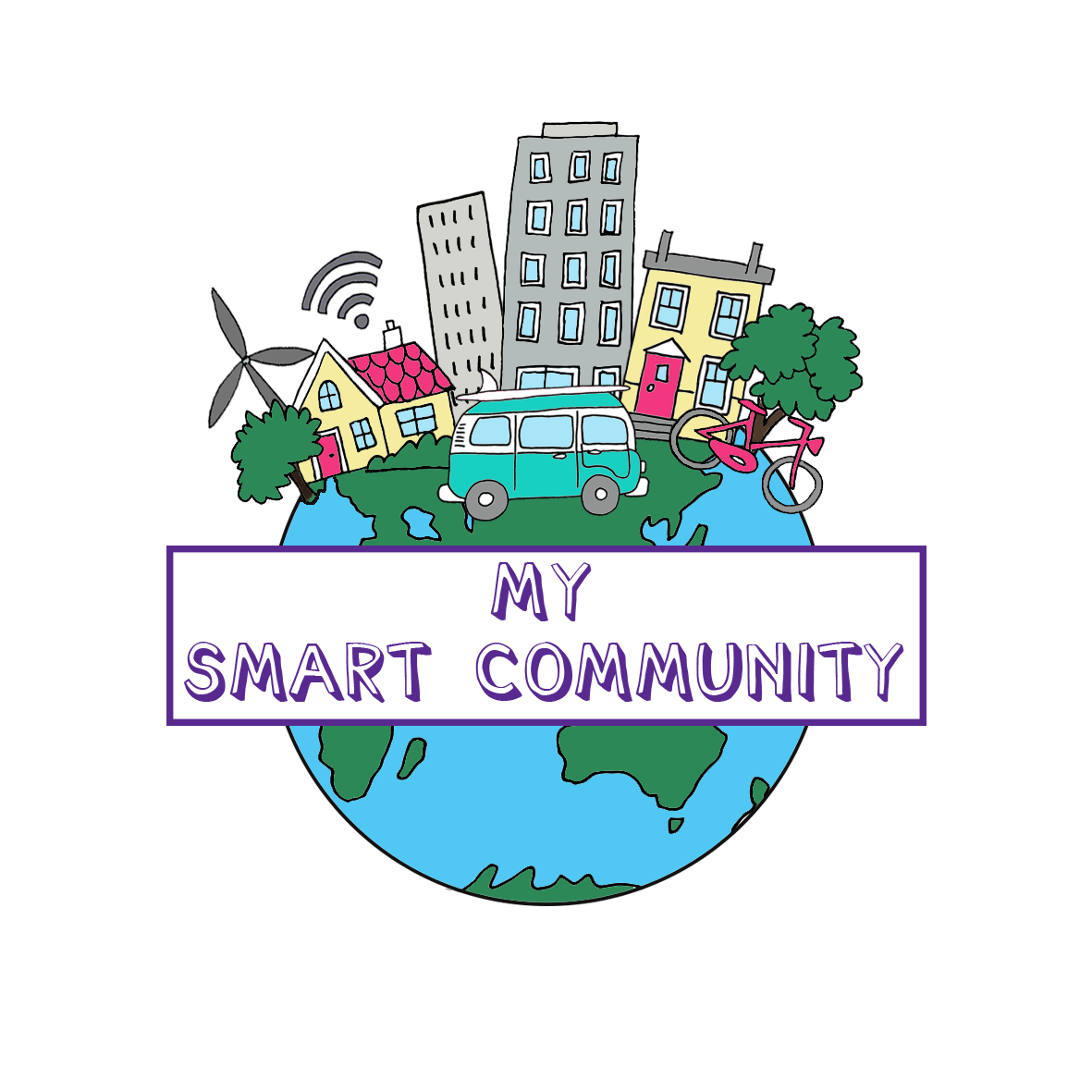
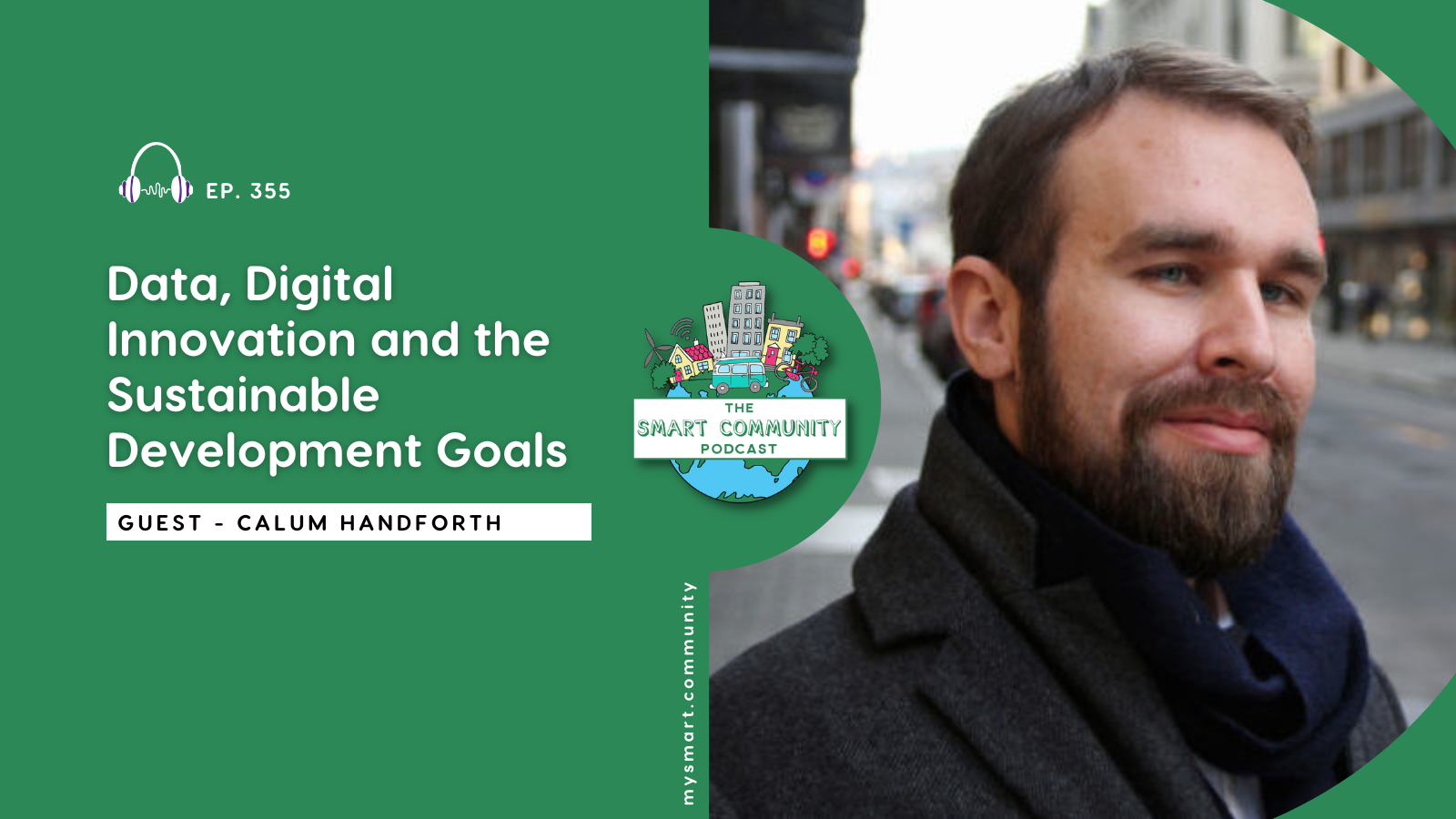
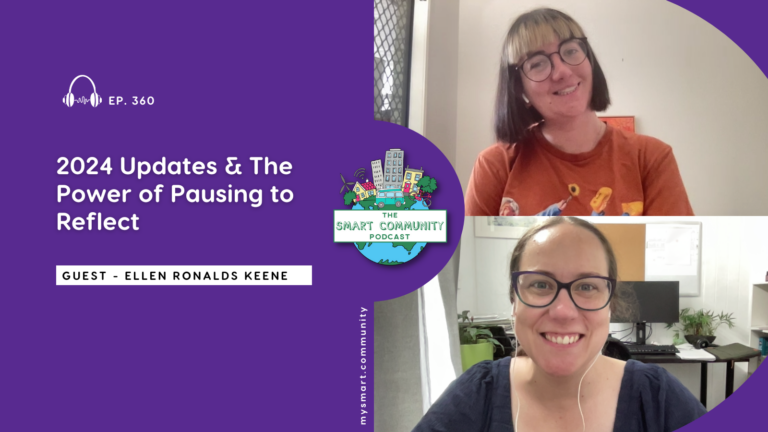
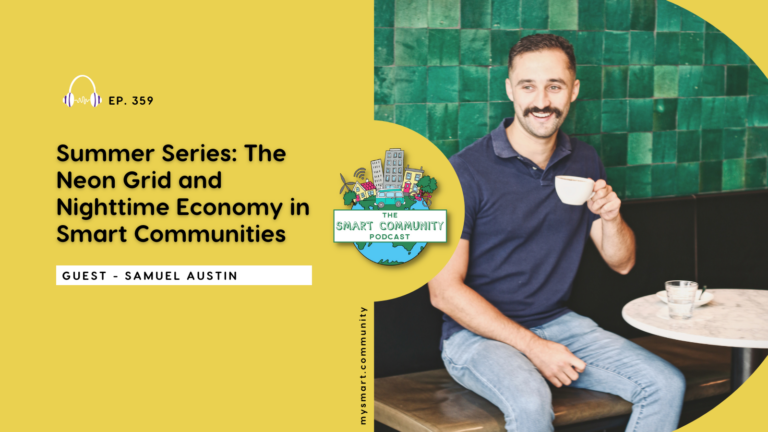
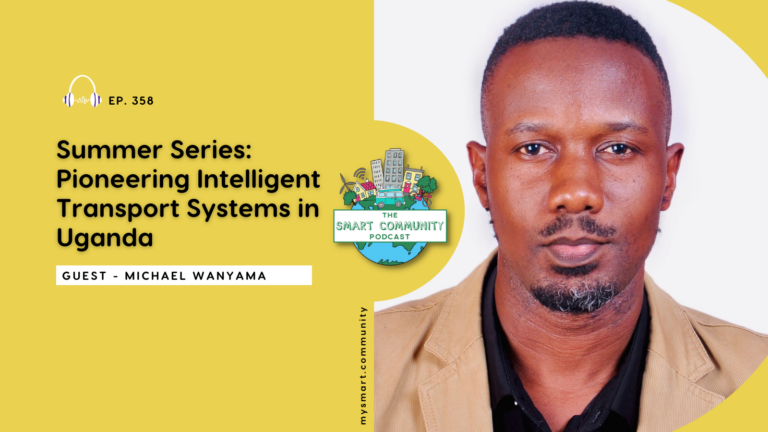

0 Comments